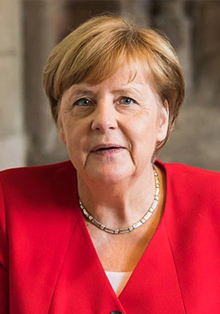Diego López Garrido
Executive Vice President of Fundación Alternativas
As we enter a period of crises in the 21st century -including the one caused by the Covid 19 pandemic- we must examine in depth the European Union’s capacity to face such disruptions. One of the most important perspectives to consider is that of solidarity. Within the Union and towards the outside. Solidarity as a moral and political principle and guide for a time of “polycrisis”. Article 2 of the Treaty on European Union (TEU), in its 2009 Lisbon Treaty wording, points out the values on which it is founded: democracy, the rule of law and fundamental rights and freedoms. It adds that these values are common to the Member States, in a society in which pluralism, non-discrimination, tolerance, justice, equality between women and men, and solidarity prevail.
However, solidarity was not present, but rather the opposite, in the European Union’s reaction to the Great Recession that broke out in 2008 in the USA and hit Europe much harder. Experience has enabled the Union to do exactly the opposite of what it did in 2008 in the face of the dreadful and devastating Covid-19 pandemic. An example of this is the centralized coordination by the European Commission of the purchase and distribution of vaccines. Also, the qualitative leap towards a large joint issue of public debt led by the Commission, as a way of financing the Union’s aid to the Member States to the tune of 750 billion euros, through the Next Generation program.
There are five critical phenomena that call for a solidarity response from the Union. The first and most obvious – and most urgent – is the pandemic crisis, with the humanitarian and economic implications it has unleashed. Solidarity here is very visibly two-fold: internal and external. On the internal side, the Union has worked well. Vaccination levels are high in the European population and among them, Spain stands out, by the way. However, external solidarity has left much to be desired. The Union has not shown sufficient solidarity with the poorest countries. In Africa, only 2% of the population has been fully vaccinated. And “vaccination protectionism” is partly to blame. It is a suicidal policy. No country can be safe from the virus if all countries are not.
The second challenge to European solidarity is climate change. We can thus speak of a “climate solidarity”. The magnitude of this challenge has been highlighted by the recent United Nations report, presenting a truly catastrophic horizon for the planet: unexpected floods, out-of-control fires and major storms, which we were unaware of because of their shocking intensity.
The Taliban takeover in Afghanistan has reminded us that there are other crises besides the pandemic and the climate crisis. These are the migratory crisis and the refugees trying to escape ideological persecution, discrimination against women and children, intolerance of unorthodox sexual orientations, etc. Europe must apply solidarity between Member States to share fairly the burden of migrations that predominate in the Mediterranean area due to obvious geographical constraints. There is still no European migration and asylum policy.
The above challenge is connected to another pending issue: social Europe. Gothenburg (2019) was not enough. Nor was Porto (2021) enough. The Union must set itself objectives in the social and labor field that are as concrete as in the fiscal rules. I am referring to the minimum wage, pensions, access to housing, school dropouts, social services or gender-based violence.
There is one last form of solidarity to make the above possible: fiscal solidarity. The Union only behaves as such in monetary policy, not in economic policy. In this respect, the scandalous absence of tax harmonization stands out, which makes the States that make up the European Union fight among themselves to lower direct taxes in order to attract capital, thus competing unfairly with their neighbors. Not only is there no solidarity here; there is anti-solidarity, which becomes extreme in relation to what is a disgrace for humanity: the existence of tax havens. Some of them in the European Union itself. Paradises that allow tax evasion and avoidance on a large scale.
It has been rightly said that human history is a story about cooperation. And, we add, a story about disasters (two world wars) when this has not been the case. A European consensus on cooperation and solidarity must be developed. In short, solidarity and cooperation are not only the main references of European culture, but also the unquestionably necessary orientation to solve the archipelago of crises that floods us in this first quarter of a surprising and challenging century.
*Excerpt from his speech at the Economic Forum held in Karpacz, Poland (September 7-9, 2021).
© Fundación Alternativas / All rights reserved






